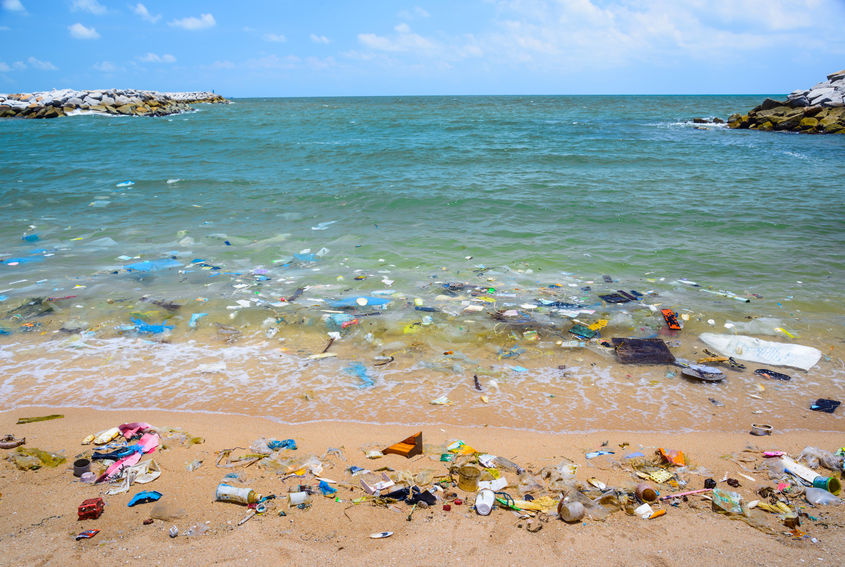News
4ocean Tackles the Plastics Crisis One Pound at a Time

Innovations for Sustainability
The plastics crisis. Some 8 million tons of plastics are dumped into our oceans every single year. There is an estimated 46,000 pieces of plastic in every square mile of ocean. Beautiful beaches are covered in garbage. Wildlife is dying at a dramatic pace. What will it take to reverse the damage?
For the last several decades, global production and consumption of plastic products has steadily risen. Plastic is lightweight, versatile, resistant to moisture, and– most importantly– inexpensive. These attributes have rendered it quite an attractive solution for many types of packaging and myriad other uses. But no matter how durable, flexible, or ideal it may seem, this durable material is incredibly slow to degrade, and herein lies the problem. Our attraction to plastics use when paired with our tendencies to over consume, discard, and irresponsibly use this long-lasting product across the board has spun into a dire problem– one that is quite literally overflowing into our world oceans at a horrifying rate.
The Beginning of 4ocean
Andrew Cooper and Alex Schulze were so disheartened by the plastic-covered beach they encountered on a surf trip to Bali that they decided to do something about it. Trash and discarded plastic debris covered the otherwise incredible beach, with each breaking wave ushering in more and more. These two ocean-loving surfers could hardly believe the severity of the crisis at hand, and they were moved to try to make a difference somehow. Thus 4ocean was born.
These two ocean crusaders decided to face the problem by hiring boat captains and crews to clean oceans and coastlines full time, starting in places like Bali where mass amounts of plastics and trash accumulate regularly. They were inspired by other lifestyle brands that were able to raise awareness about various causes, building passionate followings that helped further their work. So they decided to employ a business model that would give them a footing for rapid growth– that way they could pay their crews fairly, fund cleanups, and make the greatest impact, while spreading the word about the looming ocean plastic crisis.

Alex and Andrew created the 4ocean bracelet, made from mostly recycled materials, and pledged to retrieve a pound of trash from the ocean for each bracelet sold. Profits funded cleanup operations, served as donations to other ocean-centric nonprofits, and laid the groundwork for a business infrastructure that would support the future growth of 4ocean while furthering ocean cleanup efforts.
Even though the 4ocean business has aided in ridding world oceans of millions of pounds of plastic and trash, the scope of the issue at hand means their work is a drop in the bucket. Fully addressing this waste problem will take the efforts and consciousness of every human being sharing this planet. That said, dramatic systemic changes and hard work from many organizations, businesses and individuals across the globe could collectively reverse this damage done.
How Can You Help?
iSustain, much like 4ocean, is committed to driving change, and specifically helping tackle the plastics problem as it pertains to our oceans. Through our implemented programs, we help clients recycle 3.3 million pounds of plastic waste every month. Recycling just one ton of plastic saves 685 gallons of oil, 5,774 kilowatt hours of energy, and frees up 30 cubic yards of landfill space. More importantly, recycled plastics are taken out of the waste stream of items that wind up in the ocean.
Are you committed to driving change? What can you do to help? Buy a bracelet. Pick up discarded trash. Stop buying one-time-use plastic products. Afterall, big change is preceded by a thousand tiny ones. What tiny changes can you make?